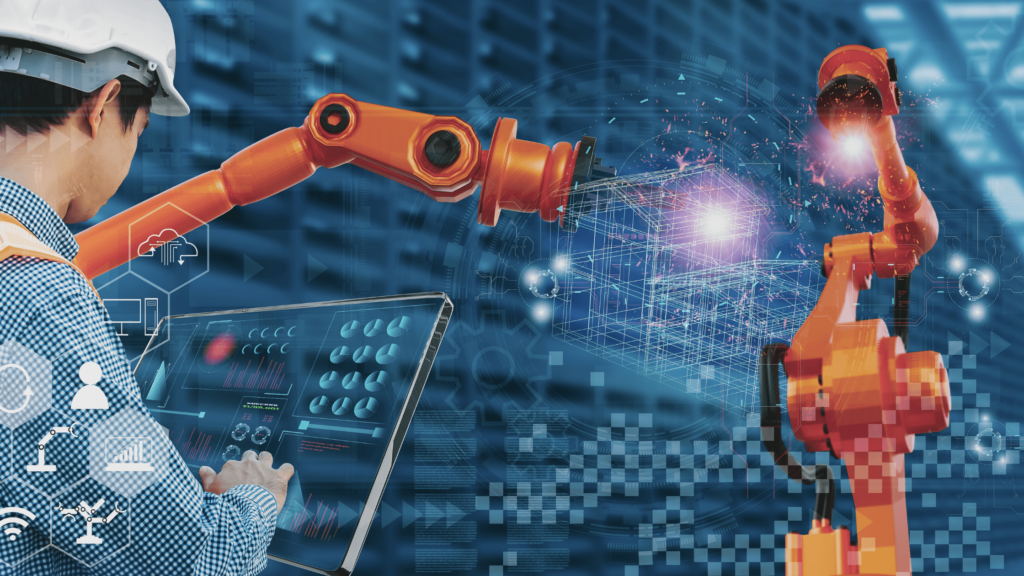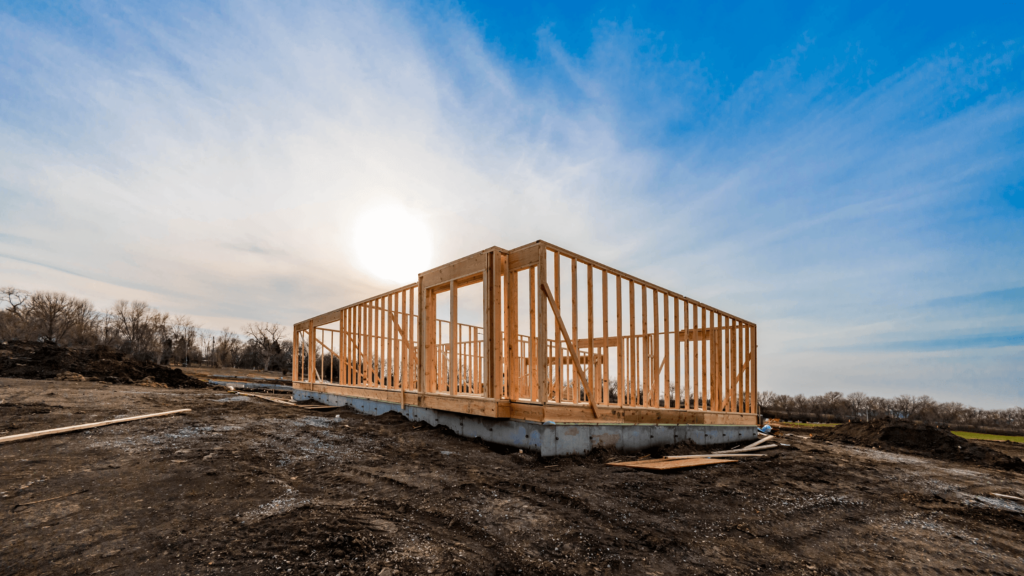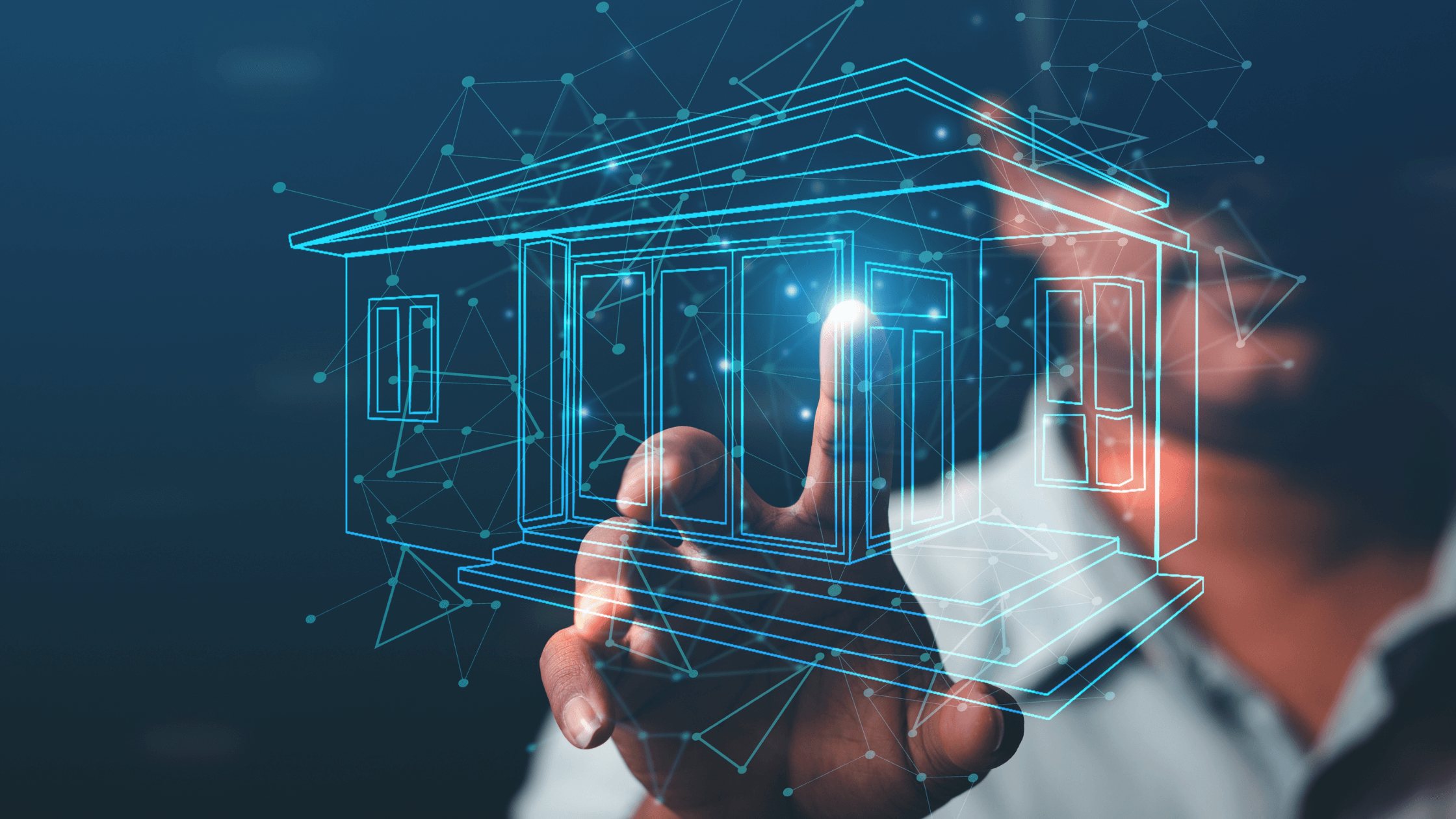Artificial intelligence (AI) is reshaping residential construction, streamlining everything from design to project management and safety. Whether improving construction outcomes with predictive analytics or optimizing layout and construction sequencing, AI drives innovation and productivity while ensuring skilled workers remain at the heart of the industry.
Quick look
- AI is revolutionizing construction by automating tasks, reducing material waste, and improving project efficiency and safety.
- AI enhances home construction with 3D modeling, predictive analytics, smart home tech, and AI-driven design personalization.
- AI optimizes workflows, resource management, and project forecasting for large-scale builders, reducing delays and maximizing productivity.
- Integrating AI into construction supports, not replaces, workers—streamlining processes, saving costs, and improving outcomes across all construction phases.
Artificial intelligence and the built world

With AI technology becoming mainstream, several use cases are being explored and utilized to improve construction outcomes. While many industry experts warned about the potential dangers of AI replacing most trade jobs, this has yet to materialize. In fact, it’s quite the opposite, helping builders work smarter, not harder. Here are the top ways artificial intelligence is revolutionizing construction.
Reducing material waste
One of AI’s significant contributions is its ability to reduce material waste. Since construction accounts for nearly 30% of global waste, these innovations can reduce material waste, save resources, and reduce environmental impact.
Artificial intelligence is helping construction projects tackle waste more effectively by providing valuable insights and automating critical processes. Predictive analytics powered by AI can forecast the types and amounts of waste generated at each project stage. With this foresight, project managers can create waste management and recycling plans tailored to the project’s specific needs, reducing waste and controlling costs. By analyzing current and historical project data, AI ensures materials are ordered more accurately, preventing overordering that often leads to unnecessary waste.
Artificial intelligence also plays a key role in waste categorization and recycling. Automated systems can precisely sort and classify materials, reducing contamination and ensuring more waste is diverted from landfills to recycling facilities. These tools also track and manage recycled materials, providing detailed data on their quantity and quality. With this information, managers can make better decisions about reusing materials in future projects, supporting a circular economy and promoting sustainability in construction.
Improved timelines
AI transforms project timelines by bringing advanced scheduling and planning techniques to the construction industry. One such method, “construction optioneering,” allows AI-driven tools to create and analyze multiple project schedules.
For example, ALICE Technologies has developed the world’s first generative construction simulator, which allows project managers to explore multiple scenarios and generate fully resource-loaded 4D schedules in minutes. This iterative scheduling approach enables teams to test different build strategies, adjusting variables such as timelines, workforce allocation, and material delivery to find the most optimized solution, reduce risks, and adhere to deadlines.
Beyond optimization, artificial intelligence tools excel at predicting potential delays. These systems analyze vast amounts of real-time and historical data, including weather patterns, supply chain logistics, and workforce availability, to identify risks before they happen. For example, if material shortages are anticipated, AI can suggest adjustments, such as resequencing tasks or reallocating resources, to keep the project moving forward without interruptions.
AI-driven scheduling also enhances coordination and communication across teams. Schedules are updated dynamically, and notifications are sent automatically to ensure everyone is aligned with the latest project changes. This reduces downtime caused by miscommunication and keeps projects on track.
Improving project safety
AI is playing a transformative role in improving safety on construction sites, addressing one of the industry’s most persistent challenges. With tools like wearable tech devices, site monitoring systems, and advanced predictive analytics, artificial intelligence can help reduce work accidents–one of the leading causes of time away from work in construction. Here are some of the ways construction companies are using AI for safety:
- Real-time hazard detection: Wearable sensors can monitor workers’ physical conditions, such as heart rate, body temperature, and fatigue levels, providing early warnings of potential health risks. These devices can also detect when workers enter restricted or high-risk zones and send immediate alerts to supervisors to prevent accidents.
- Site monitoring systems: AI safety systems use cameras, drones, and sensors to analyze construction sites in real-time to identify hazards like unstable structures, unauthorized equipment usage, or improper safety gear. By continuously scanning for risks, AI ensures that supervisors are alerted to potential dangers before they escalate into serious incidents.
- Predictive analytics: The AI is trained on historical and real-time data to forecast potential accidents based on patterns, such as frequent violations of safety protocols or recurring equipment malfunctions. This enables construction managers to address risks proactively, reinforcing training or updating safety measures where needed.
The impact of artificial intelligence on safety is substantial. In addition to preventing thousands of workplace injuries annually, fewer accidents mean reduced downtime, lower insurance costs, and a stronger focus on worker well-being, making AI a critical tool for the construction industry’s ongoing commitment to safety.
Artificial intelligence and residential construction

With so many use cases, it’s no surprise that AI is transforming residential construction, offering smarter, more efficient ways to build and manage homes. Here are some of the ways AI is improving outcomes in residential construction:
- Faster and more accurate design phase: AI is making the design phase faster and more accurate with AI-generated 3D models and blueprints. These tools allow builders to create detailed digital copies of homes, making it easier to visualize projects, adjust layouts, and address potential challenges before breaking ground, saving valuable time and reducing errors.
- Predictive analytics: While predictive analytics can be used for safety, they can also be used in the bidding and sourcing phase. AI tools can easily analyze market trends, material availability, and costs to help builders optimize their budgets. By identifying the best materials sources and predicting fluctuations in pricing, builders can ensure projects stay on budget and schedule.
- AI-powered chatbots and virtual assistants: These tools provide instant responses to client inquiries, improving engagement and helping customers navigate design options, timelines, and pricing details more efficiently.
- Virtual design: AI is bringing personalization to the forefront of interior design. AI-powered tools can suggest customizable designs tailored to client preferences, from furniture placement to color schemes, helping homeowners visualize their future spaces before deciding.
- Smart technology: Smart home technology is one of the most exciting areas of artificial intelligence in residential construction. Integrating AI-powered systems into homes improves automation, energy efficiency, and convenience. Features like intelligent climate control, security systems, and voice-activated assistants are becoming standard in modern homebuilding, providing a glimpse into the future of living.
The benefit for large-scale builders
AI offers large-scale builders an unparalleled opportunity to enhance efficiency, reduce costs, and improve project outcomes. By uploading a wealth of data on past projects and outcomes, AI tools can manage complex projects with greater precision and adaptability.
One key advantage of using AI in large-scale projects is optimizing layout and construction sequencing, allowing builders to manage the development of multiple homes simultaneously. AI tools analyze site data and construction plans to create the most efficient workflows, minimizing downtime and ensuring crews can move seamlessly from one task to the next. This level of coordination would not be possible without AI input.
AI also excels at providing accurate predictions for builders. By analyzing historical data and real-time inputs, artificial intelligence systems can forecast demand for materials, predict project costs, and establish realistic timelines. These insights help builders avoid costly overruns and plan more effectively, ensuring they can confidently meet deadlines and budgets.
In addition, resource management becomes more efficient with AI-driven tracking systems. These tools monitor the use of labor, equipment, and materials in real-time, identifying opportunities to optimize allocation and reduce waste. For instance, AI can suggest reallocating equipment to underutilized areas or flagging potential shortages before they impact the project.
Bottom line
AI is transforming residential construction by enhancing several aspects of the construction process without compromising the importance of skilled workers. Rather than replacing jobs, artificial intelligence supports the workforce by streamlining processes, optimizing resources, and improving outcomes across every construction phase. For builders, this means the ability to deliver higher-quality projects on time and within budget while still valuing and utilizing human expertise.
As the construction industry evolves, staying informed about the latest technologies is essential. Subscribe to our newsletter and follow us on social media for insights on emerging trends, innovative solutions, and the tools shaping the future of residential construction. Stay ahead and build smarter with us!


